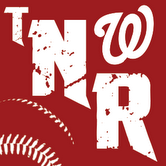Recently I was contacted by Chris Jaffe of The Hardball Times with an interesting request. He wanted me to review pieces of a book he had just finished on baseball. The only condition was to not really quote the book, as it isn’t being released until April. I jumped at the chance, although when he told me it was about managers, I wasn’t sure if I would like it. I am a skeptic about managers effectiveness, usefulness, etc. I don’t think they’re irrelevant, but I’m just not sure how important they really are, as long as they don’t break anything. However, I read the description of the book, and it piqued my interest:
This ambitious study of major league managers since the formation of the National League applies a sabermetric approach to gauging their performance and tendencies. Rather than focusing solely on in-game tactical decisions, it also analyzes broader, off-the-field management issues such as handling players, fans, and media, enforcing team rules, working with the front office, and balancing pressure versus performance.
So wait, he’s gonna actually try to gauge their effectiveness? Using things like logic and numbers? Ok, I’m in.
The book is called, in a stroke of creative genius, Evaluating Baseball’s Managers, and that’s exactly what it does. I was given an excerpt focused on Washington (and Montreal) teams, with managers going back as far as 1892. The whole book is not so DC focused, but that’s what I was sent. The excerpt I received is set up something like an encyclopedia, or maybe a better comparison is a website like Baseball Reference.
Each section starts with a manager’s name and shows some interesting stats, at which point he goes into a description of the guy. While it is laid out like an encyclopedia, it doesn’t read like one. The descriptions are entertaining and enlightening. You learn about each manager (some more than others – he doesn’t have a whole lot of stories on the pre-1900s guys, for example); their tendencies, their personalities and their effectiveness.
And he doesn’t just regurgitate stuff we already know, he is actually insightful. He notes that Bucky Harris, DC’s only World Series winning manager, was one the best at the running game despite having no prolific speedsters, and would have ranked much higher on lists if he only figured out how to win 1-run games. He finds Walter Johnson incredibly underrated as a manager. He states that Moises Alou was one of the greatest “old” managers in history, Hall of Fame caliber. And that if Alou had been hired when he was younger than 57, the lateness likely due to the fact that he was both black and latino, he would have a plaque in Cooperstown.
There are insights like this throughout the book. What I like about it most is that it is more than just a layout of the stats and then an explanation of said stats. Jaffe gives a clear evaluation of each manager, and then lays out a case for his conclusion. And while he makes his case, he gives the readers stories about the subject, without being overly poetic or getting too sappy. I find the book very interesting and really have enjoyed reading the excerpts. If you want to learn more about how effective managers are, or just want to learn about the individuals that made up that part of the game, this is a great read.
Finally, I’d be remiss if I gave a positive review and didn’t give the place to purchase the book. Here’s the link:
http://www.mcfarlandpub.com/book-2.php?id=978-0-7864-3920-1
